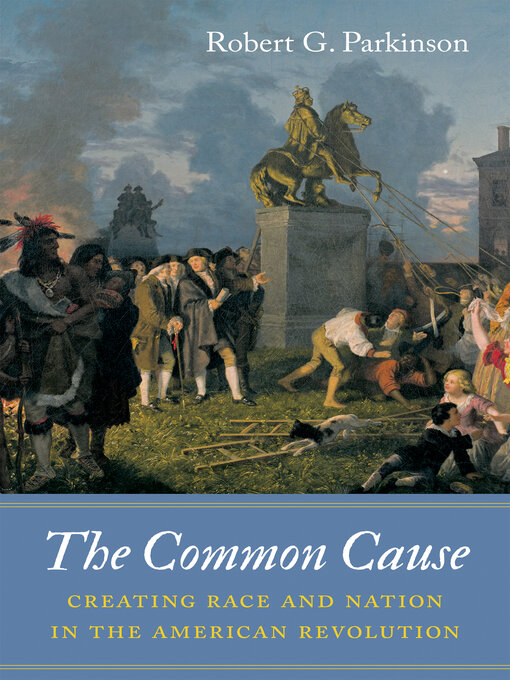Always available
Always available
In a fresh reading of the founding moment, Parkinson demonstrates the dual projection of the "common cause." Patriots through both an ideological appeal to popular rights and a wartime movement against a host of British-recruited slaves and Indians forged a racialized, exclusionary model of American citizenship.
-
Creators
-
Series
-
Publisher
-
Release date
May 18, 2016 -
Formats
-
Kindle Book
- ISBN: 9781469628103
-
OverDrive Read
- ISBN: 9781469626925
- File size: 11332 KB
-
EPUB ebook
- ISBN: 9781469626925
- File size: 11332 KB
-
-
Languages
- English
-
Reviews

Loading
Formats
- Kindle Book
- OverDrive Read
- EPUB ebook
subjects
Languages
- English
Loading
Why is availability limited?
×Availability can change throughout the month based on the library's budget. You can still place a hold on the title, and your hold will be automatically filled as soon as the title is available again.
The Kindle Book format for this title is not supported on:
×Read-along ebook
×The OverDrive Read format of this ebook has professional narration that plays while you read in your browser. Learn more here.
